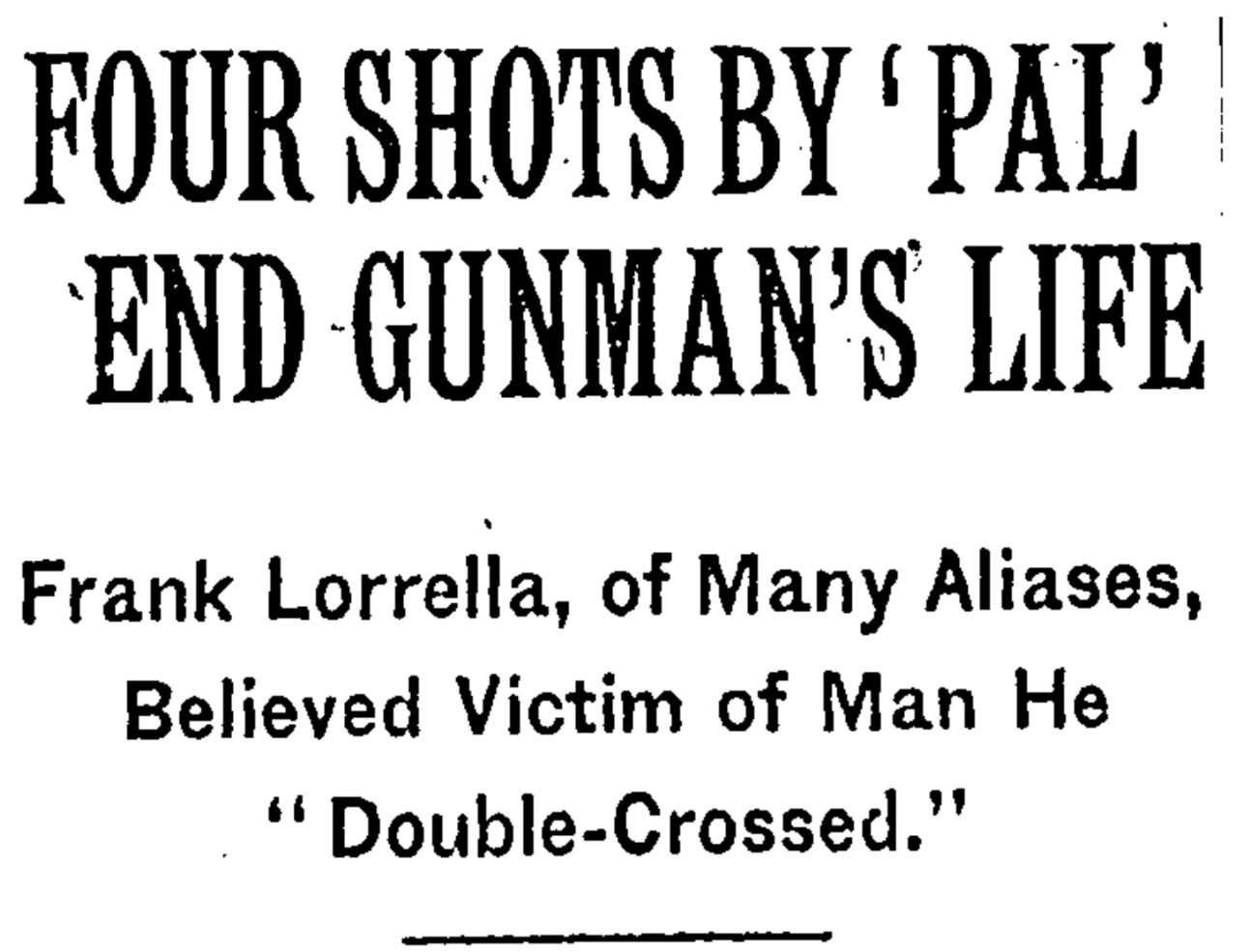- Strange Times
- Posts
- Strange Times 217: A Grievance and a Gun
Strange Times 217: A Grievance and a Gun
No but seriously, who did the Senator mistake for Trotzky?

Founded in 2017, Strange Times is a twice-monthly newsletter that explores the weirdest news of 1921, one day at a time. To get free games and the original PDFs of every article that runs in Strange Times—plus stories that didn’t make the cut—back me on Patreon.
Three Things I Like
The world is a miserable burning pit at the moment and promises to remain that way for the indefinite future. Here are three things that are bringing me joy today:
Geese! It’s spring (just about) in Philadelphia and that means that every morning I’m treated to the sight of airborne triangles of geese honking through the sky on their way from wherever they’ve been all winter to wherever they’re going now that it’s warmed up. I’m 37 years old and I still haven’t gotten over the fact that they really do the flying V thing. Yesterday my kids and I were trudging to school when we stopped to watch a wedge of them jumble themselves and reform mid-flight, to give the leader a break. It’s absolutely magic and it happens every damn day.
Pens! I’m taking three consecutive calligraphy classes this spring, which has afforded ample opportunity to get various inks all over my various fingers, and I also decided to celebrate the official completion of my next book—To Kill a Cook, not yet available for preorder but coming your way next year—by buying myself a Majohn A1 fountain pen, a $35 Chinese clone of a Pilot pen that usually runs around $200. It’s mustard yellow, heavy and smooth and it makes me wants to make notes on a new Deadball expansion, so that’s just what I’m using it for.
Harvey Fierstein! I’m listening to the audiobook of his 2022 memoir, the excellently-named I Was Better Last Night, and while his “dark rasp” of a speaking voice is absolutely delightful, the cheery anecdotes that make up most of the book are even better.
Today’s issue brings a baffled Senator, a beloved pup, and a burglar gunned down on the Lower East Side. Crate your damn dog on…
August 5, 1921
For the first time in history, a facsimile of a written document is transmitted across the Atlantic Ocean using radio waves, as the Times’ managing editor uses the Belinograph to tell his counterpart at French newspaper Le Matin, “The New York Times congratulates Le Matin upon this new method of wireless transmission.”
Placing the victims of the ongoing famine at 18,000,000, the Soviet Union requests aid from anyone who will send it.
As American surgeons insist they treated Caruso’s recent illness with the utmost care, the late tenor is laid to rest in Naples in a coffin made of crystal before a requiem sung by 400.
In Staten Island, a 12-year-old boy finds a Great War grenade washed up on beach, which he opens with a hammer and a pair of pliers, killing himself and badly wounding one of his brothers.
The Weather: Fair today; increasing cloudiness Saturday, probably showers; not much change in temperature.

My favorite kind of mystery—the absolutely unsolvable kind. Trotsky was a looker, but Nordic he was not. And just a reminder—the original PDF of this story as well as the others that run in this issue and several that didn’t make the cut, including Caruso’s funeral and an unhinged gun battle in West Virginia, are available to Patreon subscribers.
RIGA, Aug. 4.—All Riga, including the Bolshevist Mission itself, is wondering just whom Senator France mistook for Trotzky in Moscow.
The Senator stated here on more than one occasion that he had been greatly impressed with his interview with Trotzky—“a big man doing a big job in a big way”—whom he declared to be a typical big blond with blue eyes of the Nordic type. He maintained this description against all comers, to the general bewilderment.
Even the Soviet representatives here admit Trotzky is of an eminently different type and race, and it is difficult to see just where so striking a metamorphosis occurred.

This story was almost unbearably cute until we got to the image of the teary-eyed children sleeping on the coffee sack, at which point it became fully unbearable. I’m very glad things worked out for the family and the dog but seriously, you’ve gotta figure this stuff out before it’s time to sail!
A flop-eared dog of doubtful antecedents and dignified only by its devotion to two children, delayed the sailing of an ocean liner yesterday and became the centre of international complications in which the Italian Consul championed the cause of the dog.
The trouble began when Joseph Antonelli, his wife and five children arrived at the pier of the Cosulich Line, Bush Docks, Brooklyn, to board the steamer Argentina on which they had booked third-class passage. As the family flocked up the gangplank, Georgie, aged 5, and Francesca, 4, were noticed by the steamship officials lugging a nondescript dog.
“You can’t bring that pup board,” said one of the officials. “If it goes at all it will have to be properly crated as freight, and you won’t be able to take it ashore at Naples unless you have a permit from the Italian Government.”
The two youngsters who heard this ultimatum sat down at the foot of the gangplank and wept. The dog understood that something was wrong and licked their faces. Then, while Antonelli was arguing with the officials, the two children decided that they wouldn’t go to Europe without their pet and were on their way down the dock when the father noticed their absence. Sailing time arrived and the children were missing. The parents appealed to the Superintendent A.J. Bachman to aid them. Sympathetic passengers made a hurried search of the docks.
Pier Watchman John McGrath finally discovered the children asleep on a coffee bag in a deserted section of the pier, the faithful animal guarding them. The pet, true to his traditions, resentend interference and tried to bite the watchman. Meanwhile a hurry call had been sent for carpenters, who arrived with a crate. Someone had telephoned to Phelps Brothers, agents for the line, and they agreed to transport the animal at half price—$5—which was contributed by a passenger.
The pup was duly crated, the children all smiles and the dog happy, when a new obstacle arose. The ship’s officers announced that the animal could not be brought aboard without a health permit issued by the Italian Consul. Again gloom and again tears from the children. But the resourceful Mr. Bachman canvassed the pier and a neighboring wharf, where another steamer was sailing, and located the necessary official.

You can feel the glee of the Times rewrite men whenever they get their hands on a gangland slaying. I am certain at least one wannabe pulp author had their hands on this piece—I can tell because I am one myself.
Frank Lorella, of many aliases, ten times in the hands of the police in his 29 years of life, will never “pull off” another burglary. Last night as darkness fell in the shadows of Chrystie Street, a “pal” emerged from the underworld, carrying a grievance and a gun. Four bullets from the latter found Lorrella, the last piercing his heart. And the shooter slipped back into the security of his haunts.
Got away clean, did the slayer, although the reserves from the Clinton Street Station and thirty detectives from headquarters cordoned the scene of the shooting, quelled the excitement that made Chrystie Street a living thing with its hundreds of curious, questioning persons, and pushed the quick search house by house. The murderer left in his wake only the police theory that the spoils of some “job” had been unevenly divided, and the evidence that the score had been paid off.
Soon after 6 o’clock Lorrella halted his own motor car in front of 109 Chrystie Street. He had driven over from his home at 117 Delancey Street for some sandwiches and coffee. He got them and went back to his car. As he reached over to release the brakes a squat, swarthy man walked from Grand Street into Chyrstie Street.
This man went over to the car, drew a .25 automatic pistol and fired at Lorrella. The man at the wheel escaped the first shot and slumped down to avoid more. But the stranger came nearer. Without a sign that he heard the shotus or saw the persons running from the houses of the street the man with the pistol coolly fired four times more. The first shot lodged in Lorrella’s throat, the second went into his left arm, the third found lodgment under his left arm, the fourth, the fatal one, reached his heart.
The pistol went into the killer’s coat pocket and he ran into the hallway of 108 Chrystie Street. Policeman Frederick Miller of the Clinton Street station, then unknown, and thought he detected signs of life. So he hurried him to Gouverneur Hospital, where Dr. Speser said he was dead.
Back in the street arriving policemen found tense excitement, and reserves were summoned from Clinton Street. Also Detective Oswald in charge of a detachment from the Homicide Bureau at Headquarters. While squads penetrated the houses in a vain search for the slayer, several detectives went to Gouveneur Hospital and took fingerprints of Lorrella.
When these were compared with the records at Headquarters, the dead man was known, and an explanation of the shooting came to the police. They said that in addition to serving a three-year term in Jersey for burglary, Lorrella received ten months here on Oct. 10, 1910, and two years on July 30, 1913. He was discharged the other times the police arrested him, but his most recent alleged offense, that of carrying a revolver on April 16 last, had not been disposed of.


